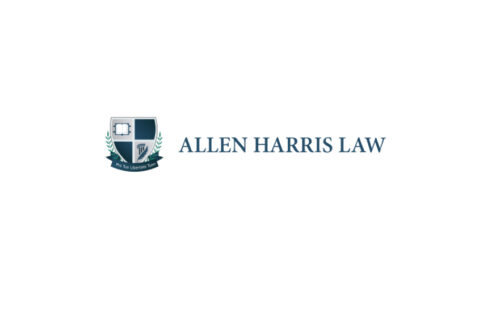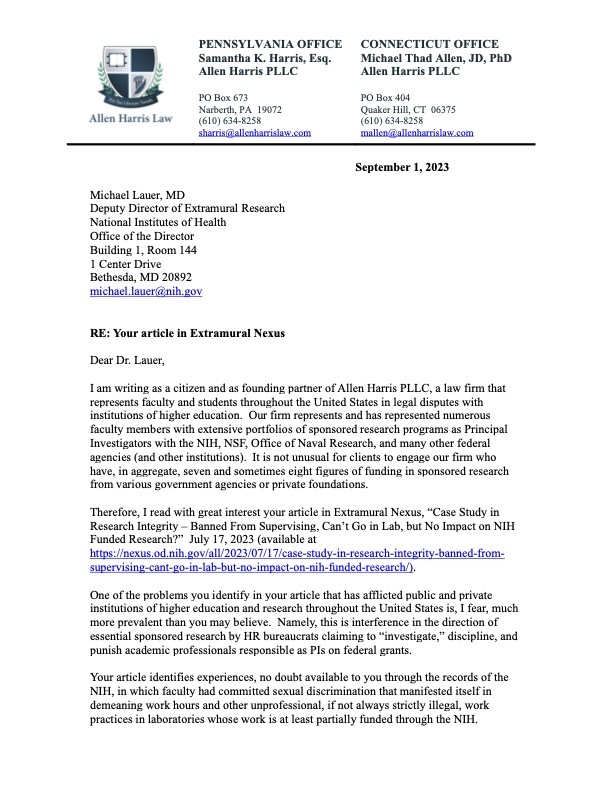
This week, Allen Harris sent an open letter to Dr. Michael Lauer, Deputy Director of Extramural Research at the National Institutes of Health.
Dr. Lauer is an accomplished American cardiologist and scientist, and he serves the NIH as the principal scientific leader and advisor on all matters relating to the substance, quality, and effectiveness of the NIH extramural research program and administration. Federal agencies such as the NIH support millions of dollars in sponsored research funding.
On July 17, 2020, he published an article warning research institutions of higher education that the NIH cannot fund programs in which discrimination takes place. He noted that institutions report discrimination to the NIH, yet that despite these findings, the same institutions would continue to collect NIH money as if there were no impact on NIH programs.
Dr. Lauer’s concerns echoed many of those we see in our practice and higher education, but for a different reason. At Allen Harris, we represent many scientists and faculty engaged in essential research. Sometimes these scientists, as PIs or Principal Investigators, manage seven and even eight figures in sponsored research programs. Therefore, Allen Harris submitted the following open letter to the NIH.
As Dr. Lauer notes, there are times when real discrimination distorts research and development in academic laboratories. Allen Harris has also represented scientists who are the victims of discrimination. Real discrimination constitutes an abuse of federal funding, one example of which is raised by Dr. Lauer’s article.
Yet, in our practice, our higher education attorneys also defend faculty in investigations undertaken on the slightest pretext. We believe this is far more common than real instances of discrimination: out-of-control Human Resources offices, by whatever name, interfere with sponsored research. Colleges and universities often go too far. Investigators with no scientific knowledge or training can run roughshod over the due process rights of faculty. Often they dispense with university rules and procedures that protect the rights of faculty. Most of the claims being investigated among our client base have little or no connection to legal claims recognizable to our courts of law as actual discrimination.
In these situations, faculty have little choice but to hire experienced education attorneys to protect their rights.
It is our hope that agencies such as the NIH will use their authority to address this situation, holding as they do the purse strings to millions of dollars in federal funding for fundamental academic research. In many cases, Human Resources departments running amok in the laboratory constitute an impediment at best, and, at worst, an illegal waste of federal funding.
To read the open letter in full, click the image below.
